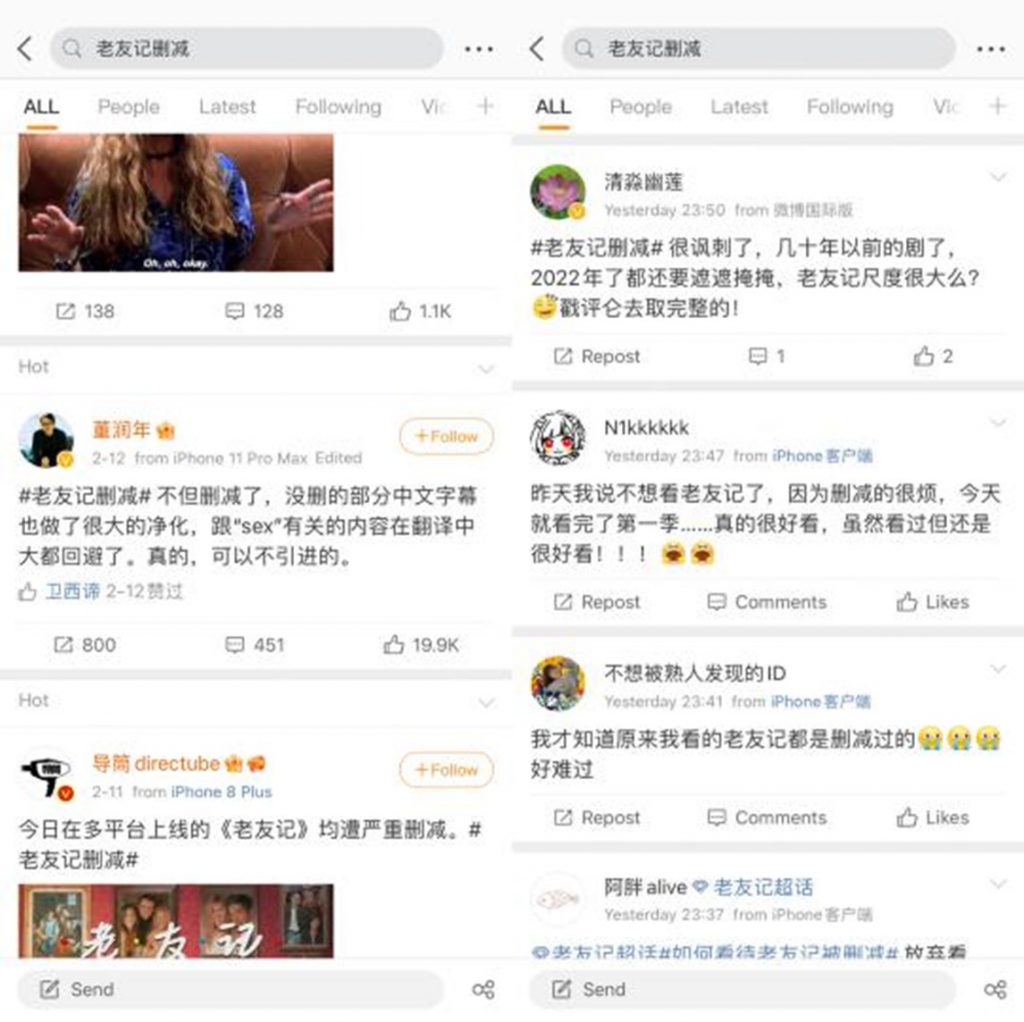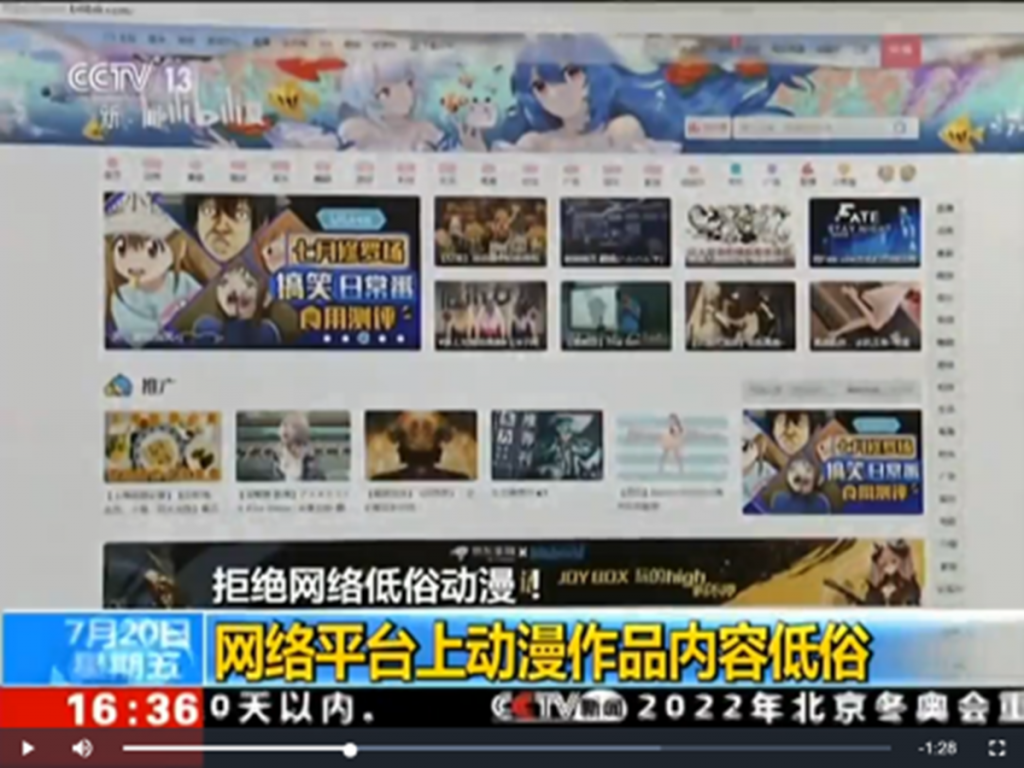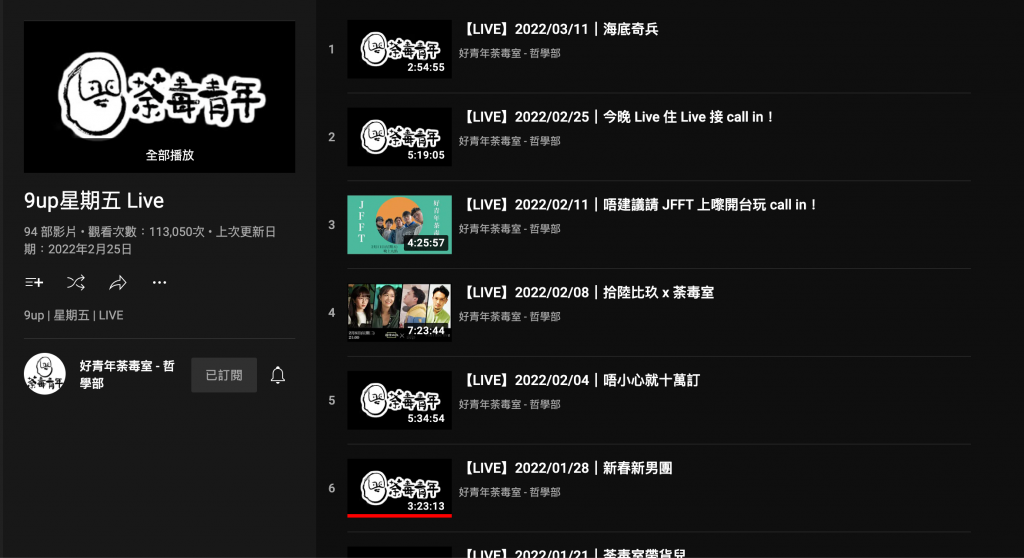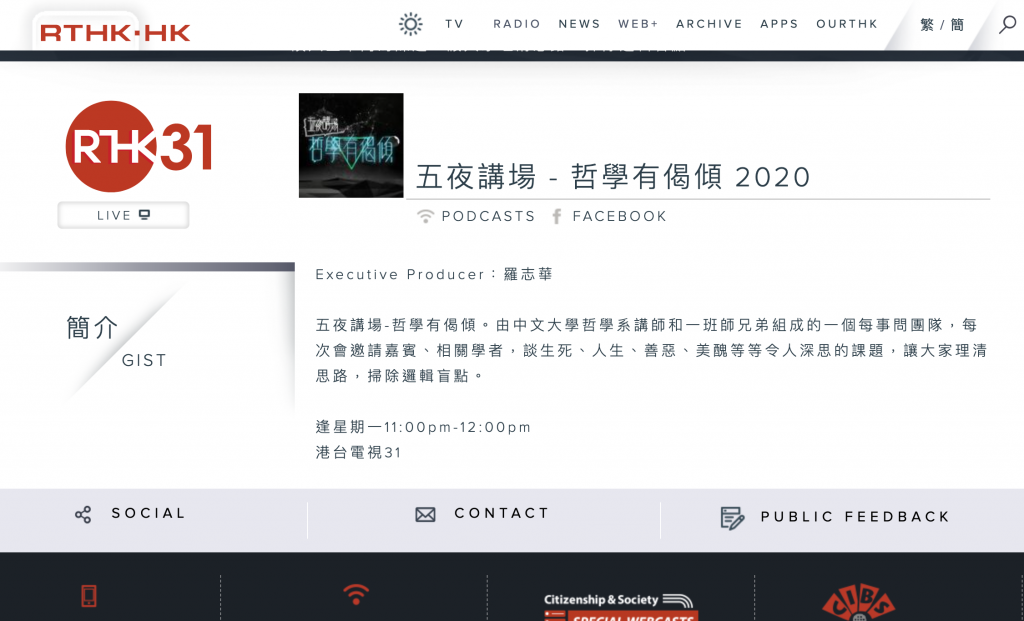Reporters: Kossy Chen, Fiona Dongye, Leopold Chen
More and more mainland Chinese are unwilling to have children due to economic pressure.
Reporters: Kossy Chen, Fiona Dongye, Leopold Chen
More and more mainland Chinese are unwilling to have children due to economic pressure.
American sitcom Friends is censored in China for ideological unity.
Fiona Dongye
Loyal fan of American sitcom Friends Xiao Luxuan is disappointed when she finds that some scenes of the 1994 TV series have been removed, when she watches the show on Bilibili, a popular video website in China.
“Taking the first episode of the first season as an example, the duration of the original version is 22 minutes and 50 seconds, while the version available on Chinese online video platforms is 21 minutes 17 seconds,” Xiao says.
Though the TV series was globally launched in the 1990s, it was not available on Chinese mainstream video sites such as Tencent, Bilibili and Sohu until February 2022.
“Lines with sexual content are not translated according to original scripts, and plots about homosexuality are also deleted. All lines about lesbians are deleted,” the university student says.
“Lines with sexual content are not translated according to original scripts, and plots about homosexuality are also deleted. All lines about lesbians are deleted.”
“This is a sitcom launched in the 1990s. (But) the authorities in China censor content for audiences in this country in 2022. Some of the plots become incoherent and less funny after the cuts,” she complains.
Xiao first watched the American TV series when studying in high school in 2017. She got access to the TV show through cloud service at that time.
“A friend recommended it to me and shared the sitcom through Baidu’s network disk with me. The documents (such as video files) shared on this platform are rarely censored. I have watched it six or seven times in total,” the 21-year-old student says.
Xiao says disappointed fans have started discussions about censorship of Friends on Weibo, a popular social media in China. The tag #Friends Deleted# was once a hot search on Weibo, but the tag was quickly removed.

Joe Sun worked as a video censor for Bilibili from 2018 to 2021. He finds that Bilibili’s censorship has become stricter in recent years.
“Bilibili used to be more liberal and did not censor videos much. But the platform started practising stricter censorship after China Central Television criticised Bilibili for allowing ‘inappropriate content’ on their platform in 2018. Many foreign TV shows such as Westworld and Skam have been removed,” he says.
“Censors will delete all content that criticises the Chinese Communist Party. There is no specific guidelines to follow. In many cases, censors have to make their own judgments. Most will just simply remove all contents which they fear it might cause trouble,” Sun says.
“The authorities always keep their eyes on popular TV shows and films because they believe that these contents have the potential of affecting the public’s thoughts and values. Friends is very popular in China. If Bilibili does not cut some content which is considered sensitive in China, American dramas including Friends might be totally removed,” he adds.

Fang Kecheng, assistant professor at the School of Journalism and Communication at the Chinese University of Hong Kong, says that censorship has widely existed in China for years.
“From a historical perspective, it can be said that censorship has existed since the time when the Party came to power. If mainland Chinese video sites want to import foreign films and television programmes, they need to buy the copyright and make sure that the imported versions can stand the censorship test,” Fang says.
The assistant professor points out that the Chinese authorities want what the people watch to be in line with what they advocate.
“In recent years, the mainland authority has increasingly stressed shaping and following a dominant value, rather than respecting diversity. The government has become more hostile to values from overseas. Even if the content does not directly criticise the party or the country, if it is judged to be inconsistent with the values advocated by the party, it will still be deleted,” he says.
“Even if the content does not directly criticise the party or the country, if it is judged to be inconsistent with the values advocated by the party, it will still be deleted.”
Edited by Alina Chen
Sub-edited by Kajal Aidasani
Reporter: Yap Ying Ye
Many Hong Kong students studying overseas are keen to come back to spend their summer holidays with their families. They face many struggles due to the anti-pandemic restrictions and regulations in Hong Kong.
Reporters: Amelie Yeung, Iris Jiang
Many migrant domestic workers in Hong Kong have been scammed out of money. Police figures show about 600 migrant workers fell victims to frauds in 2021. One of the victims, Enah, shares her story.
Reporters: Esme Lam, Karmen Yip, Christine Tang
Affected by the COVID-19, lots of Hong Kong people have not travelled abroad for two years. But the pandemic cannot stop some travel lovers from travelling and more preparations are done before starting the trips.
Brad Wharakura kindles his love of doing drag in Hong Kong.
Tessa Yau
Brad Wharakura is a fitness instructor by day, a glamorous drag queen – Madame Mincemeat by night.
“Drag is just a creative outlet for me and it allows me to do things that I would not feel very comfortable with myself. I really like the feminine energy from drag queens and I can let go of masculinity and stereotypes to have fun when doing drag,” Wharakura says.
“I can also use a lot of humour and make a fuss about serious things when I am doing drag. People’s perception of me in and outside drag is still the same,” he adds.
Wharakura usually performed at clubs in Lan Kwai Fong and various restaurants for drag brunches before the pandemic.
The drag queen moved to Hong Kong to take up a job in a fitness company in 2004. He learnt about drag culture after meeting his friend Greg Derham, who was also a drag performer in the city.

“I came from a small town – Ngaruawahia in New Zealand and I had never met any man dressing up femininely in there. I just started off by learning the techniques from YouTube, from make-up, hairstyle to costumes,” he says.
Wharakura buys clothes from second-hand shops and fashion outlets like Zara and Topshop. Then he modifies the clothes with accessories all by himself.
His looks are inspired by 90s supermodels and classic campy queens. He describes his looks as “a combination of the feminine and absurd but ultimately uncomplicated”.
Wharakura had his first drag performance at the Clockenflap Festival in 2015. His audience sat under a small tent on a grassland in Central. “I did not have high expectations. It was quite intimate and I actually liked it,” he says.
He performed three songs and tore off his dress revealing a leotard underneath in a costume review. “I was just going all out,” he recalls.
“The audience and I personally enjoyed my first performance a lot. And I was quite surprised that four people came up to me and asked when and where they could see me again. That was really encouraging,” he says.
Wharakura never feels nervous about his performance, as he is used to dealing with large crowds as a fitness instructor.
“I do drag for myself. I am not worried about how people perceive my performances. I only wanted to have fun and freely express myself in a different way. But the audience’s support is definitely a motivation for me to keep going,” he says.
“I am not worried about how people perceive my performance. I only wanted to have fun and freely express myself in a different way.”
In 2017, Wharakura introduced drag brunches to Hong Kong restaurants with his working partner. Guests can enjoy lip-sync performances by drag queens and interact with them by playing games and dancing while having food and drinks.

“Being part of the original group to start the culture of drag brunches is a highlight of my life,” Wharakura says.
The drag brunches started off very well until COVID-19 hit the world. Restaurants, bars and clubs where drag queens perform are all badly affected.
“Surely the pandemic has affected my life as a drag queen. I have the luxury to have drag as my hobby only, as I still have my main job in a fitness company. Yet there are also a lot of drag performers who rely on it as a source of income and it has been a tough time for them,” he adds.
Other than the impact of the pandemic, there were also moments that the 40-year-old man felt lost and unsure whether to continue in pursuing drag as a hobby.
“Sometimes when I am not in the mood, I have tons of questions in my mind when I am doing the make-up for drag. Is this a good use of my time? Should I pursue drag full-time instead? Am I too old for this? There is a time I just felt myself being a glamorous clown with no one taking it seriously,” he says.
Despite everything, his “so what” mindset keeps him going. “As long as it is fun and interesting to do drag, I will continue to be a drag queen,” he says.
“I do not see myself worrying about getting people’s approval for this 40-year-old drag queen. I think drag has different colours and scales, and it is not something black or white. There are so many ways people can interpret and present drag and there is no right or wrong,” he says.
Wharakura returned to New Zealand in early 2022 to spend some time with his family. But he will come back to Hong Kong after the pandemic and continue to pursue drag in the city.
“There’s something special about Hong Kong and I will have a long-standing relationship with this place even in tough times,” he says.
“There’s something special about Hong Kong and I will have a long-standing relationship with this place even in tough times.”
Edited by Leung Pak-hei
Sub-edited by Angel Woo
Philosophy students and lecturers from university are trying to creatively promote philosophy to Hongkongers.
Cheryl So
Philosophy can be entertaining and practiced in daily life, a philosophy group striving to promote the hugely misunderstood discipline to the general public vows.
Founded by 13 philosophy graduates and postgraduates from the Chinese University of Hong Kong (CUHK) in 2016, Corrupt the Youth has more than 100,000 subscribers on their YouTube channel with their videos garnering more than 10 million views.
The group name was inspired by a Greek philosopher, Socrates, who was sentenced to death for ‘corrupting the youth’ with his ideas.
One of the co-founders, Yeung Chun-yin, attributes their popularity to their light-hearted way of promoting philosophy via videos on YouTube every Friday. The group started livestreaming in April 2020.
Publishing their first live video named “9up”, which means talking bollocks, the group tries to befriend the audience and hopes more people will be willing to watch their videos about philosophy.

“We did not have a plan in mind when we first started livestreaming, just chatting and relieving our stress. We keep viewers company by going livestreaming regularly and that is the most important part of our channel. We also scroll through comments and talk to them as friends,” Yeung, who is also a part-time lecturer in the Department of Philosophy at CUHK, says.
“We do livestreaming even during Christmas Eve and New Year’s Eve because it is important to show our commitment to our members,” he says.
“If we do not do it in an entertaining way, no one will be interested at all. Some even say the philosophy we teach has blood and tears. I will continue to speak out and exercise the freedom of expression we still have,” he adds.
“If we do not do it in an entertaining way, no one will be interested at all. I will continue to speak out and exercise the freedom of expression we still have.”
Breaking Stereotypes
Scenes of swearing and drinking are common in their live videos and are regarded as the most interesting parts by their fans. The most viewed clip is about one of the drunken hosts demonstrating a CUHK tradition, “dem beat” which is chanting slogans with clapping hands and stepping. The video has gained over 90,000 views.
“People who study philosophy are often stereotyped as nerds. Our behaviours often shock our audience. It shows that a person can have different layers. Doing these live videos can capture attention from other people,” the group’s co-founder, Alex Lai Ka-lok says.
Last year, the group started a series called “I Study Drama” with videos featuring philosophical concepts and presented them as drama. But some members in the group felt upset when reading viewers comments which were mostly about their acting rather than the philosophical concepts they wanted to present.
“I know some group members were upset but I personally do not mind,” Lai says, adding that it is entirely up to the audience to interpret the videos. He feels happy that some audience have come up with perspectives that they have not thought of.
“Sometimes I worry whether we are too entertaining. But then I think not everyone really needs philosophy that much. Just knowing it is quite enough,” Lai says.
From Entertainment to Education
Before livestreaming and posting videos on YouTube, the group first appeared in a new Radio Television Hong Kong (RTHK) TV programme called ‘Philosophy Night’ which was the first talk show featuring philosophical discussion in Hong Kong in 2016.
Dr Lau Po-hei, a part-time philosophy lecturer at the CUHK, was one of the curators and hosts of the RTHK programme.
“The views of each ‘Philosophy Night’ episode were around 10,000 before they did live on YouTube. The views of the programme reached over 100,000 in 2020. It shows that audience who watched their live shows also watch our programme,” Lau says.
“They do entertaining livestreaming and serious talk shows at the same time. This can cater to different audience. Viewers can always find videos they like and absorb knowledge,” he adds.
Future of Promoting Philosophy
RTHK cancelled all talk shows, including Philosophy Night in 2021. Dr Lau still hopes to continue his work despite losing a platform to promote philosophy.
“Not everything can go as planned in life. We are still taking experimental steps,” he says.

The group is doing a series of talk shows which is like the continuation of ‘Philosophy Night’. The first episode was released on January 31, 2022 with 840,000 views.
Lai thinks philosophy can help people think rationally in chaotic times. “We are dealing with a lot of absurd things done or said by people. But philosophy demonstrates how critical thinking works and can help people,” he says.
“We are dealing with a lot of absurd things done or said by people. But philosophy demonstrates how critical thinking works and can help people.”
Edited by Leung Pak-hei
Sub-edited by Winkie Ng
Reporter: Cynthia Chan
Editor: Winkie Ng
Ukrainian university students continue their learning despite the war. While some students rush to air raid shelters during online lessons in Ukraine, some flee to other countries for safety to continue their studies.
Director Casper Leung Cheuk-lam shares his passion in variety shows and films.
Jenny Lam
When most think that having a degree is a must for a successful career, Casper Leung Cheuk-lam proves otherwise. He is now a director of popular variety shows and an editor of an award-winning film.
The 31-year-old director has so far produced five variety shows for a YouTube channel Trial and Error (試當真) which has 431,000 subscribers with a total hit rate of 75 million views.
The most viewed production was an episode inspired by the popular South Korean TV series Squid Game. It was launched in 2021 and gained 1.6 million views in four months.
Leung also edited a Hong Kong film Weeds on Fire (點五步) which won the Film of Merit in the 23rd Hong Kong Film Critics Society Award in 2016.
Leung started working as a video editor in an advertising company when he was 19 after earning from his higher diploma in multimedia and digital entertainment at the Hong Kong Institute of Vocational Education in 2008.
After working at the advertising company for three years, he resigned and worked as a freelance video editor for about eight years.
“My income was unstable when I was a freelancer. I thought of quitting the industry and finding a job with a stable income. But I knew I was only good at editing. This made me feel frustrated and lost,” Leung says.
Leung did not give up and his life took a turn when he met the founder of Trial and Error, Neo Yau Hawk-sau in 2016. Yau invited him to join the team to produce variety shows when he started the channel in October 2020.

“I consider myself as the lucky one. There are many people who are more talented than me but are not given an opportunity to be a director,” Leung says.
“Neo told me that Hong Kong needs a variety show right now. The audience can meet more new faces in the industry and it allows local productions to grow. Unlike films or dramas, variety shows can let people understand the true personality of the actors,” he adds.
Leung felt frustrated and worried when he produced his very first variety show for the channel in March 2021.
“When I know that I am in charge of variety shows, I know that it has to be interactive and ingenious. I don’t want to do a show that it is set in a studio where artists just sit around and play games like the Super Trio series (獎門人系列) in the past,” Leung says.
The witty director has always enjoyed designing games since he was young.
“My brother and I used to redesign rules for some board game cards or chess pieces. I have always loved to design games since I was young,” Leung says.
“I think variety show to me is not just a game show. It is more like a film with a story structure. I have to develop a plot with a climax and some twists in my productions,” he adds.
“I think variety show to me is not just a game show. It is more like a film with a story structure.”
But the director confesses that variety shows are not his main interest. His ultimate goal is to direct a film.
“To be honest, I barely watch variety shows. But producing variety shows gives me the opportunity to do social experiments and a chance to learn more about humanity.” Leung says.
His experience as a variety show director has taught and shaped him to become a better director.
“Variety shows are complicated productions in which I have to allocate duties to different departments and communicate with them. This work nature and experiences have helped me to learn more about a director’s duties,” he says.
Leung remains hopeful about the future of Hong Kong entertainment industry, despite a sharp fall in the city’s film production.
“In this unprecedented age of the internet, no one can predict which video will go viral. All we can do is to create quality productions and nature will take its course,” Leung says.
“A serious working attitude is what I value most. If everyone in the industry works hard and does the best he can. I believe the industry will thrive again,” he adds.
Edited by Leung Pak-hei
Sub-edited by Angel Woo
Reporters: Phoebe Chu, Carrie Lock, Charlie Chun
Editor: Angel Woo
The War in Ukraine has been going on since February 24, 2022. While many Ukrainians are defending their country on the ground, Iana Zinovieva and Roman Ivanenko, members of the Ukrainian Society of Hong Kong, are fighting for their country in their way in the city.